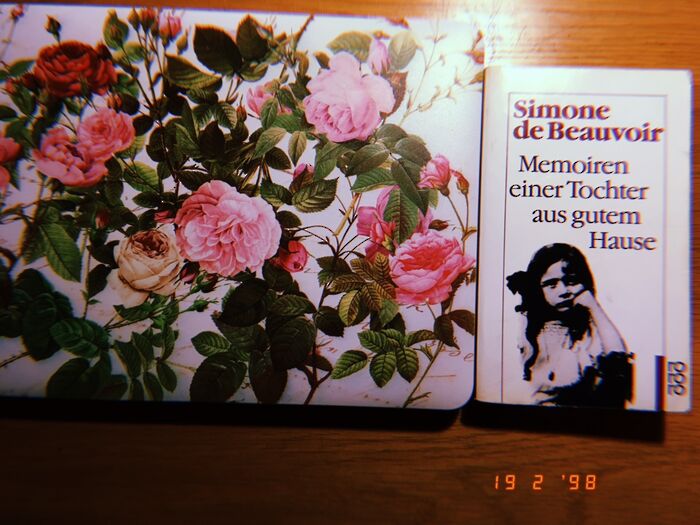The political nature of literature
Following Dr Preti Taneja talk at the Jesus College’s Intellectual Forum, Nicholas Harris explores the political past, present, and future of literature

On Wednesday 6th February, Dr Preti Taneja spoke at Jesus College’s Intellectual Forum about her award-winning debut novel, We That Are Young, a reimagining of King Lear set in contemporary India. Dr Taneja clearly has high expectations for the book, claiming that the novel “takes on identity politics”, “class hierarchy” and “structural power”, and unashamedly referring to it as a political novel. Although she does not deny the claims of other speakers at the event that her book is an engrossing read, she expressed no doubt that her book was first and foremost a piece of political fiction, an exemplar of George Orwell’s oft-quoted mission “to make political writing into an art”.
“Fiction grazes our emotions in a way that a newspaper column cannot”
Orwell is the putative authority on this genre, through action as well as instruction. Nineteen Eighty-Four and Animal Farm are in some senses the political novels, satires of the midnight of the century now inculcated in Western culture as a fearsome image of totalitarian dystopia, something which remains relevant today. But it is in his essay Why I Write that Orwell declared “no book is genuinely free from political bias”, before elaborating that the “opinion that art should have nothing to do with politics is itself a political attitude”.
Few have sought to disagree. Even Martin Amis, the style supremacist of English writing, recently conceded that “neutrality is a chimera”, a “mythical creature”. But it must be remembered that Orwell himself admitted that he did not start out with this philosophy. He says in the same essay that had he lived in “a peaceful age”, he “might have written ornate or merely descriptive books” but as it was he was “forced into becoming a sort of pamphleteer”. Beside the rare instance of self-conceit from Orwell (an encounter with his early fictions suggests that the chances of his making it as a 20th century Dickens were slim), here he concurs with Dr Taneja, who remarked upon the need for political fiction in our politically truculent times, who cites the opening up of the Orwell Prize to fiction to evidence this trend.
“All literature is political, by the way that it reflects the assumptions and opinions of a worldview”
Whether by will or not, literature is made political, or at least prejudicial. Partisan sentiment is either driven into a book, or seeps in, like rain into a sandcastle, invading its structure. That doesn’t mean that it has to be the book’s intention. The tradition of English satirical novels exemplifies best this model of bearing prejudice without political purpose. When we finish Decline and Fall, what feeling are we left with? Humour is certainly present, along with a vague sense of Waugh’s disaffection with the modern world, as seen through his burlesques of modern architecture, modern relationships and the modern aristocracy. But it does not stimulate us to excoriate or denigrate these institutions, and, as Waugh himself declares in his preface, “Please bear in mind throughout that IT IS MEANT TO BE FUNNY”’
It is often said of satire that its morality is latent, or implied, on the assumption that to unleash a comic attack on something or someone suggests the existence of a better alternative. This does not make satire didactically political. With Dickens we get an angry and parodic attack of all kinds of Victorian institutions, from the workhouses to the Chancery Court. This absolutely does not mean that Dickens had any idea what should replace them. The happy endings Dickens seems to scramble towards in many of his novels (Oliver Twist, Nicholas Nickleby, Our Mutual Friend), in which characters are often saved by the intervention of wealth or a wealthy individual, seem to imply a complete dearth of ideas with regard to changing the system. They suggest only that these flawed institutions would work perfectly well if only every orphan had the protection of a rich old patron.
In the talk, Dr Taneja said she hoped her book would activate an urge to change society in her readers. This is a noble aim, and political fiction is one of the ways to achieve it, especially since fiction grazes our emotions in a way that a newspaper column cannot. But literature is more than a method of achieving outcomes. To paraphrase Orwell again, there are four reasons for writing: egoism, aesthetic enthusiasm, historical impulse and political purpose, with all four acting upon any writer to differing extents. Some take the second of these too far; James Wood once said of Nabokov and John Updike that they “freeze detail into a cult of itself”, meaning that they were pleased to let aesthetic achievement stand alone. But there is nothing inherently wrong with that. It may be just as fulfilling for a reader to enjoy the verbal pyrotechnics of Ulysses simply as an expression of human creativity.
All literature is political in the way that it reflects the assumptions and opinions of a worldview. This does not mean that politics should be the first thing we turn to when engaging with it, partially because in many cases writers of fiction do not have the answers to political questions. It limits literature if we privilege its political wing above all others for its capacity to ‘change the world’. Literature can only be as good at changing the world as it is at teaching us about ourselves, making us laugh or making us wonder.
 News / Caius mourns its tree-mendous loss23 December 2025
News / Caius mourns its tree-mendous loss23 December 2025 Comment / Yes, I’m brown – but I have more important things to say22 December 2025
Comment / Yes, I’m brown – but I have more important things to say22 December 2025 News / Cambridge welcomes UK rejoining the Erasmus scheme20 December 2025
News / Cambridge welcomes UK rejoining the Erasmus scheme20 December 2025 News / CUP announces funding scheme for under-represented academics19 December 2025
News / CUP announces funding scheme for under-represented academics19 December 2025 Interviews / Politics, your own way: Tilly Middlehurst on speaking out21 December 2025
Interviews / Politics, your own way: Tilly Middlehurst on speaking out21 December 2025










